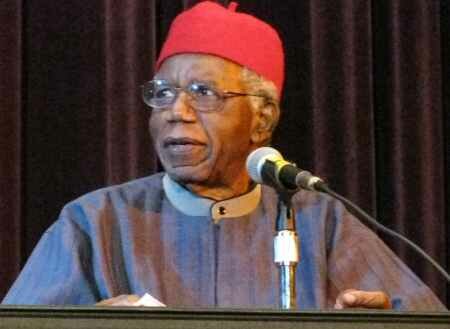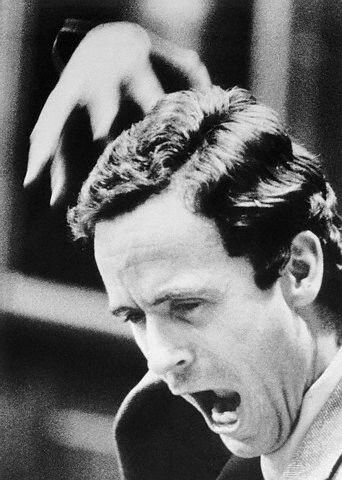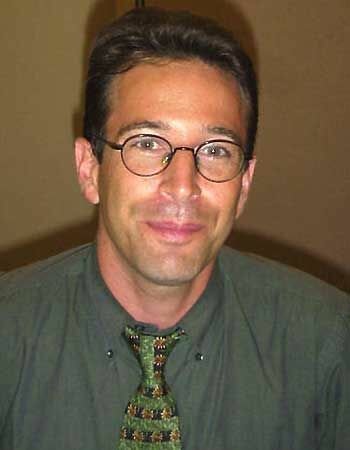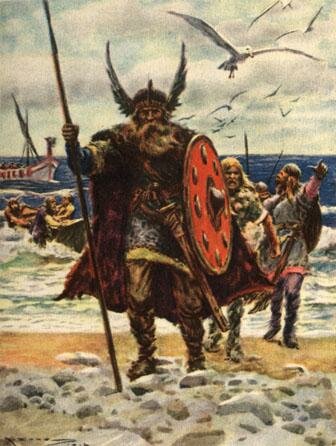Top 15 Amazing African People
Suggested by SMSIn general our American point of view tends to dominate our knowledge and understanding of our world. Tremendous, charismatic, and transformational leaders, artists, and thinkers however can be found everywhere. The challenge with this list was narrowing the field. There have been countless heroes and heroines that have spoken out against tyranny or struggled for freedom and equality across the vast continent of Africa; too many to squeeze into this very introductory list. To present the widest array of Amazing African People this list purposely strives to include some historical, some contemporary, some women, some men, some leaders, some artists, and some individuals who simply stand out. This list should be a jumping off point for further exploration of the many faces and voices of Africa.
15. Queen Nefertari of Egypt c. 1530 BC

Queen Nefertari was the Daughter of Ahotep I. She was influential during the reign of three Pharaohs; her husband (and brother) Ahmose I who ruled for twenty-five years, her son Amen-Hotep I, and her grandson Tuthmosis I. Nefertari was a royal heiress who eventually became recognized as Africa’s most brilliant queen. Her reign was so enduring, her influence was so powerful partly because she was seen as the chief priestess in the cult of the King of the Gods. She was the first Queen to be considered the ‘Wife of the God Amun.’ A special priesthood was dedicated to venerating her memory by reciting a prayer in her honor. Tuthmosis I placed her statue and a monumental stela to her honor in the Great Temple at Karnak. Worship of Nefertari continued for over six-hundred years after her death.
She is ordinarily depicted wearing the vulture headdress of Nekhbet and is described in one inscription as a ‘black woman;’ or as having very dark skin. This may indicate her Nubian ancestry but is definitely symbolic of fertility, rebirth, death, and of Egypt itself which was also known “the black land.” Queen Nefertari begins the list to remind us of the rich and ancient history of the African continent and the indelible influence Egypt has had on all civilizations since then. In some ways the influences of this Queen still echo in society today.
14. Jomo Kenyatta

Jomo Kenyatta was born in what is now Kenya in the 1890s into Kenya’s largest ethnic group the Kikuyu. In 1920 Kenya became a colony within British East Africa Kenyatta emerged as a leader of the Kikuyu Central Association becoming editor of the movement’s newspaper. Kenyatta even visited England to demand the return of African land and for increased opportunity for native Kenyans. Kenyatta remained in Europe studying at various schools and universities and published his seminal work criticizing colonialism, Facing Mount Kenya in 1938.
Following World War II Kenyatta demanded Kenyan independence from Great Britain and self-government. Even when resistance took on a more militant tone Kenyatta remained opposed to violence. Despite this colonial authorities arrested, tried and, convicted him and five other KAU leaders for aiding violent rebel leader Mau Mau in 1952. Kenyatta spent almost nine years in jail.
Shortly after release, Kenyatta was named prime minister of Kenya and formal independence came a year later. Kenyatta was elected Kenya’s first presidents and strove to unify the nation. He promoted capitalism and adopted a pro-Western foreign policy unpopular with KANU radicals. Kenyatta was reelected president in 1969 and 1974, unopposed each time. Advancing age became evident and Kenyatta died in office in 1978. He is considered the father of modern Kenya.
13. Chinua Achebe

The Nigerian novelist Chinua Achebe enters the list here for the important influence hisliterature has had world wide. His first book, Things Fall Apart published in 1959, is considered a masterpiece because it was the first work of fiction to represent African village life from the African perspective. Things Fall Apart was one of the first, first person glimpses into the plight of aboriginal tribes facing the encroaching industrialized world. It has been translated into fifty languages and has sold more than ten million copies which is just one of the reasons Achebe is considered “the patriarch of the African novel.”
In 1930 Achebe was born in the southeastern region of Nigeria known as Igboland. He grew up at time of cultural crossroads. Although his parents were Christian converts, Achebe was fascinated by the traditional Igbo faith of his relatives and neighbors that included an array of gods. In the Igbo faith every individuals is graced with their own personal spirit, called a “chi.” Achebe’s belief in the moral power of fiction became part of his vision for African literature. Achebe consistently argued for the rights of Africans to tell their own story their own way. His five novels, collections of short stories and poetry, and numerous essays and lectures put him on this list for his literary contributions.
12. Sengbe Pieh (1813-1879)

Sengbe Pieh is one of the most famous and influential Sierra Leoneans who ever lived. He is number twelve on the list because of his extraordinary courage which has earned him a lasting place in history. Sengbe, a rice farmer, was captured and sold to a Spanish slave trader. He was then forcibly transported across the Atlantic where he and forty-eight others were sold to a Spanish sugar planter in Havana, Cuba. The slaves were herded onto a ship called Amistad for the trip to the plantation. Sengbe discovered a loose spike in the ship’s wood that he used to free himself and his fellow slaves from their chains.
The slaves revolted killing the captain and driving the crew overboard. A storm drove the Amistad along the US coast where Sengbe and his men were captured and charged with murder and piracy. However a dedicated group of abolitionists recruited prominent lawyers to argue on the slaves’ behalf. President John Quincy Adams ultimately argued their case before the United States Supreme Court and they were freed. Sengbe Pieh, also known as James Cinque became a celebrity. Thousands bought his portrait and paid to see him speak about the evils of slavery. Today, Sengbe’s picture graces many public buildings and black colleges. No history book on American slavery is without an account of his deeds which is why Sengbe is number twelve on our list.
11. Barbara Masekela

Barbara Masekela serves as South Africa’s first Black woman ambassador representing the New South Africa in France. Masekela is one of only five female Black ambassadors around the world. She studied at Fordham University in New York and at the University of Zambia. Masekela graduated from the University of Ohio and served as an assistant professor of literature at the City University of New York and at Rutgers University in New Jersey. She returned to South Africa in 1990 to serve as Nelson Mandela’s chief of staff. Masekela is a mother of two boys; her youngest Selema, 13 lives with her in Paris while Mabusha, 32, lives and works in Los Angeles. This ambassador has convinced French companies to invest in South Africa. South African officials say the volume of trade between South Africa and France has doubled to nearly $1 billion a year making this underdog ambassador recognized as one of the most successful.
10. Archbishop Desmond Tutu

Desmond Tutu was ordained the first black Anglican Archbishop of Cape Town, South Africa and has been a life long activist who rose to worldwide fame as an opponent of apartheid. In 1984, Tutu was awarded the Nobel Peace Prize. Since that time Tutu has come to be considered “South Africa’s moral conscience” for his vocal condemnation of corruption, violations of human rights and poverty, AIDS, homophobia, racism, and oppression in all forms. In 2003, he was elected to the Board of Directors of the International Criminal Court’s Trust Fund for Victims. He also received the Albert Schweitzer Prize for Humanitarianism, and the Gandhi Peace Prize in 2005. In 2006 he was named to the UN advisory panel on genocide prevention.
Tutu’s writings today discuss up to date research into the dynamics of compassion and peaceful relationships between people. His on-going articles in “Greater Good” magazine published by University of California, Berkeley contribute to a greater understanding of the psychology of societies. This is why Desmond Tutu is recognized as one of the most Amazing African People.
9. Shaka Zulu

The estimated year of Shaka’s birth was 1785. Shaka was teased and ridiculed and made to feel like an outsider as a child partially because his mother came from another tribe. He grew up hating his local tormentors and listened intently to his mother’s stories of his royal blood on both sides. In his early twenties he became a warrior. The chief saw Shaka’s potential and trained him to become a future chief of the Zulus. Shaka built up a mighty warrior army demanding absolute loyalty and obedience from his man. Shaka drilled his warriors, and planned and practiced battle tactics in advance which were completely new ideas at the time. He developed divisions within his army dedicated to weapon making. He lived among warriors without the all the luxurious trappings of chief. He never married but had concubines. Shaka won the battles that made him king of all the territories in Southeast Africa in 1820.
Shaka the Zulu king had a mystique that still lives on today. His revolutionary battle tactics and innovations in weaponry make him one of the most famous and Amazing Africans ever to have lived.
8. Alimamy Rassin (1825-1890)

Alimamy Rassin is recognized as a great king who devoted his life to peace which is why he joins our list. While it may seem strange to recognize two different kings for their very opposite contributions we know that sometime life demands different things of us. Sometimes war is necessary and other times peace is the answer. In Rassin’s case peace was his course of choice. Rassin was adopted by Chief Amadu of Mafonda and offered the best Muslim education available. He was renowned as a gifted student. His intellectual achievements made him famous while he was still a boy. Chief Amadu regarded Rassin as his son and on his death in 1845, the people of Mafonda chose Rassin as their ruler.
From the outset Rassin made his hatred of war and violence clear. He vigorously promoted peace and mediated disputes, even sending his sons on official peace missions. When violent invaders, the Mandinka reached the capitol Mafonda they were so impressed by Rassin’s wise rule that they chose to withdraw and leave his lands in peace. The British administration in Freetown was equally impressed with Rassin’s orderly rule and offered him a large stipend to work on their behalf. Rassin rejected this from British Colonials arguing that accepting payment to promote peace was unethical. He ruled wisely for the benefit of his people and for this Rassin is on our list.
7. Haile Selassie

Haile Selassie I was born Tafari Makonnen. He was educated in Harar by an Ethiopian capuchin monk and a surgeon. Tafari was named the royal equivalent of a ‘count’ in 1905 at age 13. His father’s death a year later in 1906 made him regent until 1930 then he became Emperor until 1974. He traced his origins as far back as King Solomon and the Queen of Sheba. Selassie introduced Ethiopia’s first written constitution in 1931. Selassie is a defining figure in both Ethiopian and African history. The Emperor’s condemnation of chemical weapons at the League of Nations in 1936 was a pivotal moment in history. His internationalist view led Ethiopia to become a charter member of the United Nations. His promotion of multilateralism and collective security have endured and influenced prevailing attitudes.
Haile Selassie is revered as the religious symbol for God incarnate among the Rastafari movement which had its start in Jamaica in the 1930s. Rastafarians perceive Haile Selassie as a messianic figure who will lead the people of Africa and the African diaspora to a golden age of peace, righteousness, and prosperity. For his philosophical influence on twentieth century politics and for his spiritual influence on generations Selassie enters our list at number seven.
6. Moshesh I

Moshesh I founded the Basotho nation (1785–1870). He is generally regarded as the diplomatic geniuses of the 19th century. Moshesh began by absorbing refugees from the petty was between petty nations. Over time this allowed him to establish a powerful kingdom on a site 5000 feet above sea level. The Boers began invading Moshesh’s lands. The British found it in their interest to make a treaty of peace with Moshesh and The Boers. Moshesh believed that introducing the white men’s religion among his own people would be would deflect hostilities against them so he sent for missionaries who arrived from England, France, and Switzerland.
Knowing the white men would eventually strike Moshesh decided to strike first. He attacked the Boers. Though victorious, Moshesh knew that the “Great White Queen” possessed greater resources he took a step considered diplomatic in European circles; he conceded even though he was the victor and the British army went home. With the British soldiers gone, Moshesh now moved against the native chiefs and the Boers. These wars carried on for more than twenty years. In his eighties, determined that the enemy would never get his territory, Moshesh put his people under the protection of the British with the aid of his friends the missionaries. The brave old warrior died in 1870.
5. Ellen Johnson Sirleaf

Ellen Johnson Sirleaf was sworn in as Liberia’s new president in January 2006 making her Africa’s first elected female head of state. Sirleaf pledged to break with the violent past of her African nation. She took over leadership while her nation was struggling for peace after twenty-five years of coups and civil war. Sirleaf promised to stamp out corruption and secure the trust of foreign donors in order to acquire the resources needed to rebuild the country. Sirleaf serves a six-year term at the helm of Africa’s oldest republic, founded in 1847 by freed American slaves. Until a 1980 coup, Liberia was relatively prosperous and peaceful, rich in resources like diamonds, iron ore, and timber.
Harvard-educated Sirleaf earlier served as finance minister. After a rebel war forced Charles Taylor from power in 2003, Sirleaf ran for president and won the heated run-off thanks in part to her impressive resume which includes positions at Citibank, the U.N., and the World Bank. The ‘Iron Lady’ inherited a nation in tatters, at the time even the capital had no running water or electricity. Sirleaf’s top priorities were eliminating corruption, getting electricity in the capital, and assuring the future of the 100,000 former rebel fighters who laid down their arms but were roaming the streets, unemployed. Her inauguration was attended by thousands of Liberians and foreign dignitaries, including Nigerian President Olusegun Obasanjo and South Africa’s Thabo Mbeki, first lady Laura Bush, and Secretary of State Condoleezza Rice.
4. Kofi Annan

Born in Ghana, in 1938, Kofi Annan completed his undergraduate degree in the United States and undertook graduate studies in economics in Geneva. He served as a Sloan Fellow in management at the Massachusetts Institute of Technology in 1972. Annan joined the UN in 1962 while working for the World Health Organization. Annan held senior UN positions in human resources, budget and finance, and peacekeeping. When named the seventh Secretary-General of the United Nations Annan was the first elected from among the UN staff. His first five year term began in January 1997. His second five-year term drew to a close in January 2007.
As Secretary-General, Annan managed several fragile situations including attempts to get Iraq to comply with Security Council resolutions, the peaceful transition to civilian rule in Nigeria, and Israel’s withdrawal from Lebanon.As Secretary-General, Annan revitalized the UN through reform and by strengthening the Organization’s work in the areas of international peace and security; human rights advocacy, equality, tolerance and human dignity. The Secretary-General also took a leading role in the global battle against HIV/AIDS. Since the terrorist attacks in the US in 2001, Annan also focused global attention on the fight against terrorism. The Secretary-General has received honorary degrees from universities in Africa, Asia, Europe, and North America as well as a number of other prizes and awards for his contributions to the United Nations. Thus Kofi Annan represents the influence Amazing Africans have had throughout the world.
3. Wangari Maathai

Wangari Muta Maathai was born in Nyeri, Kenya in 1940. Maathai studied Biological Sciences in Kansas, earned her Master degree in Pittsburgh, and her doctorate in Germany and the University of Nairobi. She was the first woman in East and Central Africa to earn a doctorate degree, to become an associate professor, and the first to chair the Veterinary Anatomy Department. Maathai served as chairman of the National Council of Women of Kenya where she introduced the idea of planting trees. Her simple idea developed into a grassroots environmental conservation organization.
The movement established a Green Belt Network across Africa including Tanzania, Uganda, Malawi, Lesotho, Ethiopia, Zimbabwe, and more. Maathai played a global role seeking the cancellation of the unpayable debts of the poorest countries in Africa. Maathai is recognized for her consistent fight for democracy, human rights, and environmental conservation. Her Green Belt Movement has received numerous awards including The 2004 Nobel Peace Prize. In December 2002, Professor Maathai was elected to parliament with ninety-eight percent of the vote. She was subsequently appointed Assistant Minister for Environment, Natural Resources and Wildlife by Kenya’s president making Maathai the most recognized environmentalist in Africa.
2. Ngozi Okonjo-Iweala

Ngozi Okonjo-Iweala was educated at Harvard University and earned her Ph.D. from the Massachusetts Institute of Technology. She is married and has four children. Okonjo-Iweala was vice-president and corporate secretary of the World Bank Group. She left it in 2003 for a career as the Finance Minister of Nigeria. There she was put in charge of the economy of the most populous and oil-rich nation in Africa. In 2005 she led Nigerian negotiations that eliminated portions of Nigeria’s external debt. She introduced federal government financial transparency and was instrumental in obtaining Nigeria’s first ever solid credit rating. She resigned as Nigeria’s Foreign Minister in August 2006 and is notable for being the first woman to hold either position. In 2007 she was appointed Managing Director of the World Bank making Okonjo-Iweala one of the world’s most powerful and influential women.
1. Nelson Mandela

Nelson Mandela was born in South Africa in 1918. His father was Chief of the Tembu Tribe. He joined the African National Congress and engaged in resistance against the ruling National Party’s apartheid policies. After the ANC was banned by the ruling government in 1960 Mandela asserted that the ANC needed a military wing. This led to the formation of Umkhonto we Sizwe. Mandela, many ANC leaders, and fellow members of Umkhonto we Sizwe were arrested and brought to trial for plotting a violent overthrow of the government. Mandela and others were sentenced to life in prison. He was incarcerated at Robben Island Prison, off Cape Town from 1964 to 1982 when he was shifted to Pollsmoor Prison on the mainland. Mandela’s reputation grew steadily during his years in prison. He is widely accepted as the most significant black South African leader and came to symbolize the anti-apartheid resistance movement. He consistently refused to compromise his political position to obtain his freedom.
Mandela was released from prison in 1990 at which point he plunged into his life’s work, attaining the goals set out decades earlier. At the first national conference of the ANC party Mandela was elected President. In 1993 Nelson Mandela received The Nobel Prize. His hard work and endurance eventually led to the abolishment of the harsh apartheid restrictions and the reformation of the politics and economy of South Africa. At the first multi-racial elections in 1994 Mandela was ultimately elected South Africa’s first black President. This makes him the most recognizable African personality to influence change in our world.









